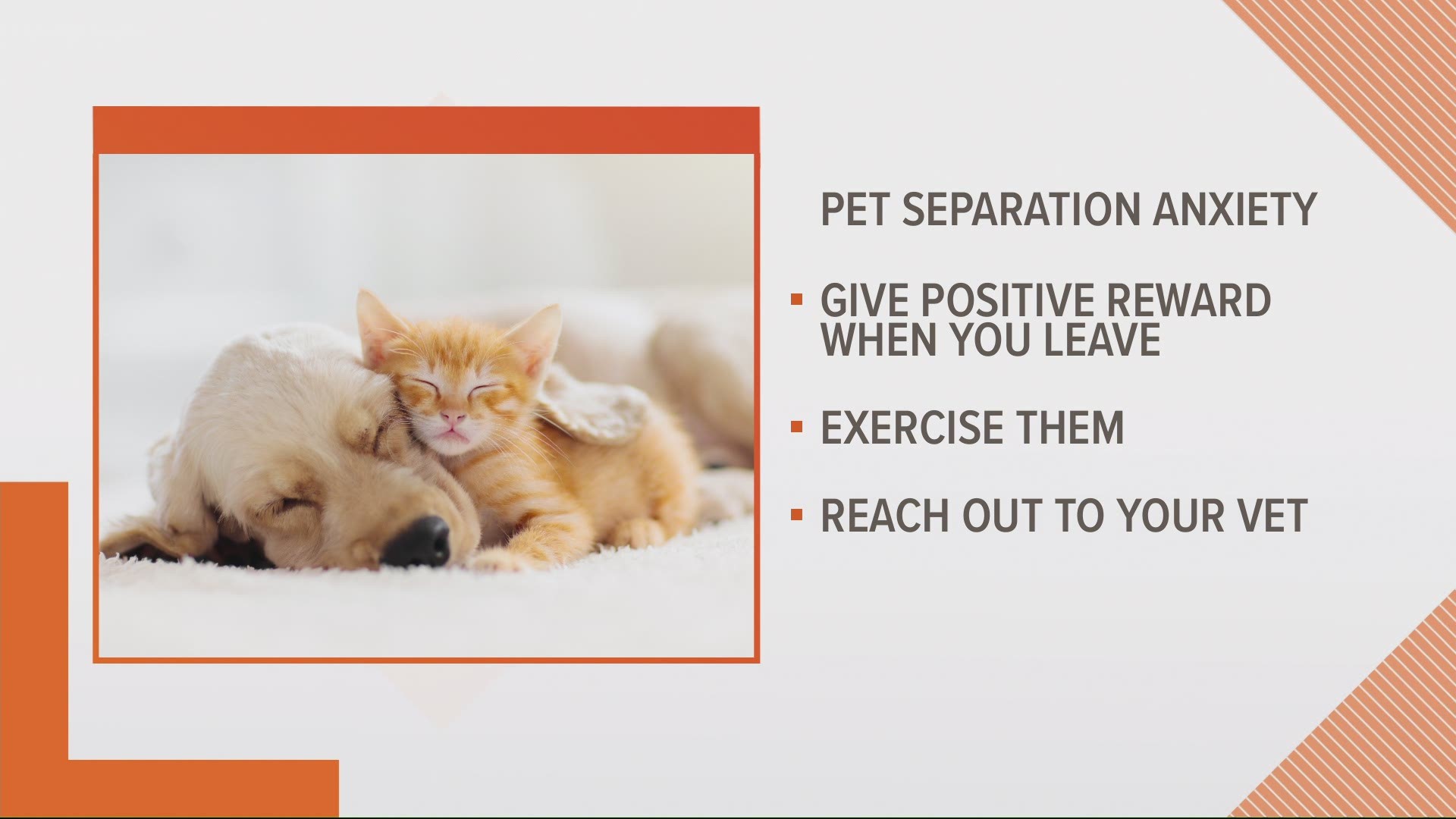ST. LOUIS — As more people get the COVID-19 vaccine and head back to work, their pets will once again be left home alone.
Leaving pets home alone post-pandemic could lead them to experience separation anxiety, according to Dr. Stacey Wallach, owner of Town and Country Veterinary Hospital.
“We knew this was coming,” she said. “We knew that the 24/7 of being with our dogs all day long, converting to the ‘Oh no we have to go back to work and life is opening and we’re going back out and doing things’ that these animals are all of a sudden gonna have a big shock."
Dr. Wallach explained the signs of separation anxiety in pets and gave tips on what owners can do to help lessen their anxiety.
Signs of separation anxiety in pets include:
- Overly attached or dependent on family members
- Become extremely anxious and show distress behaviors of vocalization, destruction, house-soiling or inactivity when separated from owners
- Follow owners from room to room and begin to display signs of anxiety as soon as the owners prepare to leave
- During departures or separations, they may begin to salivate or pant profusely, vocalize, eliminate and refuse to eat, become destructive or become quiet and withdrawn.
- Quite excited and aroused when the owner returns jumping, whining, running around for 5-15 minutes when you first come home
So, how can we start preparing our pets to be left alone?
Dr. Wallach said owners should start by leaving their pets alone 3-5 times per day. Owners should provide their own space where they feel safe, like a crate or a small room. You can gradually increase the time you’re gone as your pet gets more comfortable. Over time, your pet should learn to cope with your leaving.
Before leaving your pet, giving them a positive reward will give them something to focus on other than your departure. Dr. Wallach said the reward can be a special treat, toy or puzzle feeder. When pets are busy enjoying something tasty or fun, it’s harder for them to feel anxious.
Another way to help relieve some anxiety is exercise.
“Get out in the morning and go for a nice long walk, take them for a run, go in the backyard and throw the ball for a half hour with them,” Dr. Wallach said. “You want to get some of that first-morning energy out of their system so that when you ask them to be quiet again, they’re ready for it and they’re more accepting.”
Lastly, Dr. Wallach said pet owners can use natural anti-anxiety medications. She said something she loves to use is the Adaptil pheromone collar.
“These are natural pheromones that cause a natural relaxation and I have really good success with those,” she said.
She also said ThunderShirts, which are similar to weighted blankets, are an option as well.
“These are things that you can try at home first and see if they help and they may work, especially for those ones that have just a small amount of anxiety,” she said.
Dr. Wallach said pet owners should talk with their vet about what steps they can take to help lessen their pets’ anxiety.

